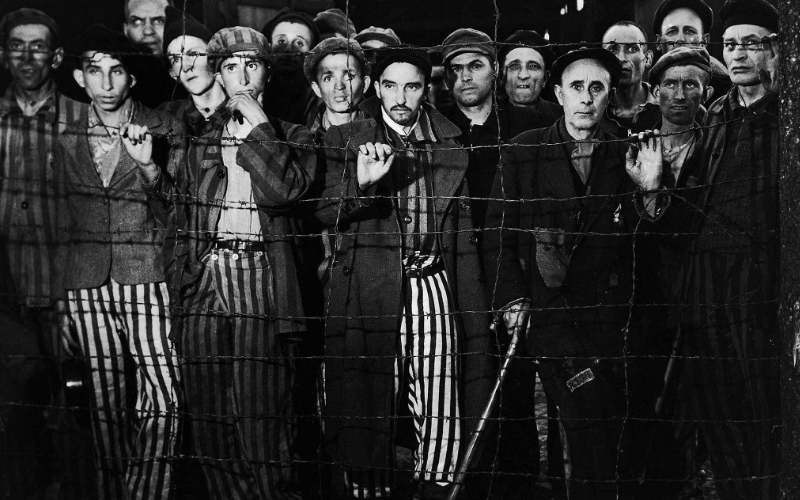| Senate Majority Leader Chuck Schumer is calling on Israel to hold new elections, saying he believes Israeli Prime Minister Benjamin Netanyahu has “lost his way” in Israel's response to the Hamas terrorist attack on October 7th that massacred more than 1,200 Israeli men. women and children. More details... |
Earlier this week, The New York Times and others cited a U.S. intelligence report leaked to New York media outlets earlier this week that questioned the stability of the Benjamin Netanyahu government. The Annual Threat Assessment of the U.S. Intelligence Community also expressed concern for Israel's post-war strategies and suggested that the prime minister's conservative support base "may be in jeopardy."
"Distrust of Netanyahu's ability to rule has deepened and broadened across the public from its already high levels before the war, and we expect large protests demanding his resignation and new elections," the report said. "A different, more moderate government is a possibility."
The report also predicted that Israel would struggle to achieve its goal of "destroying Hamas."
But Chris Mitchell, Middle East Bureau Chief for CBN News, said on Washington Watch Wednesday that the feeling inside Israel is different than the picture painted in that intelligence report.

"Oct. 7 changed things dramatically here in Israel. Oct. 6 and before that, for a number of months, was divisive. There was a sense that maybe the government would fail. There was an attack against the government on the streets of Tel Aviv," said the Jerusalem journalist. "[But] Oct. 7 united the country like never before. That's not 100%, but I think most Israelis are resolute [in meeting] the goals of the war."
Those primary objectives include the elimination of Hamas as a threat to Israel, the return of hostages, and helping displaced Israelis on the northern border and southern border return to their homes.
Mitchell estimates that 100,000 displaced Israelis can't return home because they fear Hamas in the south or Hezbollah in the north. Hezbollah on Monday fired more than 100 rockets into northern Israel, one of the largest single-day airstrikes Israel has seen since Oct. 7.
Not long ago, Netanyahu believed victory was at hand
Mitchell told show host Tony Perkins he believes Hezbollah's brazen attacks reflect perceived weakness of America, its chief ally. That's in stark contrast to Netanyahu's public comments in mid-February when he believed destruction of Hamas was "within reach."
Israel's reality may lie somewhere between the pessimism of America's intelligence communities and the optimism of Netanyahu weeks ago.
Hamas murdered, raped and kidnapped Israeli citizens in an event compared to America's 9-11. Hamas is enemy number-one, but Iran-funded Hezbollah is better-armed with more sophisticated weaponry. Consequently, the war expanding to include Hezbollah on a greater scale is a real possibility, Mitchell said.
Hezbollah's arsenal is "precision-guided, maybe ten times the firepower that Hamas had. They've estimated 150,000, 200,000 rockets. You could fire thousands in one day," notes the CBN journalist. "I mean, 100 were fired the other day. What if a thousand [or more] were fired … against specific targets inside Israel? It could be a game-changer.
"So, that's probably the nightmare scenario in the north and why Israel is preparing for possible war sometime, maybe in a few months," he said.
Sen. Lindsey Graham (R-South Carolina) says Israel needs more support from the U.S. than it's getting from Joe Biden who – facing political pressure at home – continues to suggest Israel isn't doing enough to protect Palestinian civilians. The President also calls for a ceasefire.
Graham told Perkins that U.S. leaders need to remember exactly who was killed on Oct. 7. They also need to consider Hamas' true intentions.
 "Thirty-three Americans were killed during this attack. We tend to forget that," said the Republican lawmaker. "And if Hamas could, they would add a lot of zeros to that 33. They're radical Islamists. They want to kill the state of Israel. They want the world to bow down to Islam under their terms. They would come after us if they could. This is World War II for Israel. This is Pearl Harbor and 9-11, rolled into one.
"Thirty-three Americans were killed during this attack. We tend to forget that," said the Republican lawmaker. "And if Hamas could, they would add a lot of zeros to that 33. They're radical Islamists. They want to kill the state of Israel. They want the world to bow down to Islam under their terms. They would come after us if they could. This is World War II for Israel. This is Pearl Harbor and 9-11, rolled into one.
"Did anybody suggest to our country after Pearl Harbor, Be careful how many Germans or Japanese you kill? I don't want innocent people to die, but Israel has to destroy Hamas," Graham emphasized.
Therefore, said the senator, the U.S. should afford Israel the time and space it needs to destroy Hamas militarily. "President Biden, Israel is the good guy; Hamas is the bad guy; and Iran is the Great Satan. Without Iran there would be no attack," he said.
UNRWA schools' impact on crisis
According to Sen. Graham, the quest for safety for Palestinian civilians has limits because of the Palestinians' history of hate. Palestinian schools, funded in large part with U.S. dollars through the United Nations Relief Works Agency (UNRWA), teach hate to children. Schools hold pep rallies to celebrate suicide bombers.
That resume is a big part of why Egypt won't open its border to accept refugees – and perhaps why America's continuing talks to persuade Egypt to do so have thus far been unsuccessful.
"A lot of people are reluctant to take Palestinian refugees because the Palestinians have been taught since birth to kill all the Jews. They hate all of these regimes that are not like the Ayatollah. So, Egypt's very worried they will be accepting a bunch of terrorists," Graham explained.
The way forward to address the Palestinian question, Graham contends, should involve Saudi Arabia.
"What we have to do here is try to get Saudi Arabia and Israel to get that normalization [of diplomatic relations] deal done. Then have Saudi Arabia take over the Palestinian file, de-radicalize the country, change their school system, and take the military capability away from Palestinians to attack Israel in the future. That's the way to get this thing started," he said.
But diplomatic efforts often move slowly. In the meantime, there's war. Six brigades of Hamas fighters remain, four of them in Rafah, according to reports. Rafah sits at Israel's southern border with Egypt.
"We have to let Israel destroy Hamas militarily. It should be like putting 80% of a fire out. You've got to put all the fire out," Graham said. "So, I am challenging the Biden administration to say that if the hostages are released, the war is not over. The war is over when Israel destroys Hamas militarily [and] they can have the peace of mind never to have another Oct. 7."
Tsarfati: We will win
While hate bubbles around Israel, fear can make that peace of mind hard to achieve. Amir Tsarfati, the founder and CEO of Behold Israel, told Perkins that Israel and her allies need to remember their source of strength.

"It's important to know that God is in control, and throughout history he's always been there for his people, so … the promises we have in the Bible are that he's going to get us through all of these things," Tsarfati stated. "It's important to hold a biblical perspective of the history of Israel in order to understand he's still on the throne today, and he will carry us through this even in the future."
Tsarfati's confidence comes from Israel's string of military victories since it was first recognized as a nation … but his confidence, he added, doesn't come from the armed forces.
"A lot of people – some who are holding the replacement theology, for example – think that the state of Israel is an accident. They think it's not exactly the will of God," he shared. "But over and over, since 1948 – through 1956 and '67 and '73, throughout the Lebanon war and the Gulf war, all the intifadas and the second Lebanon war – God has been faithful.
"We're still here, and we're strong, and we will win," he said.







